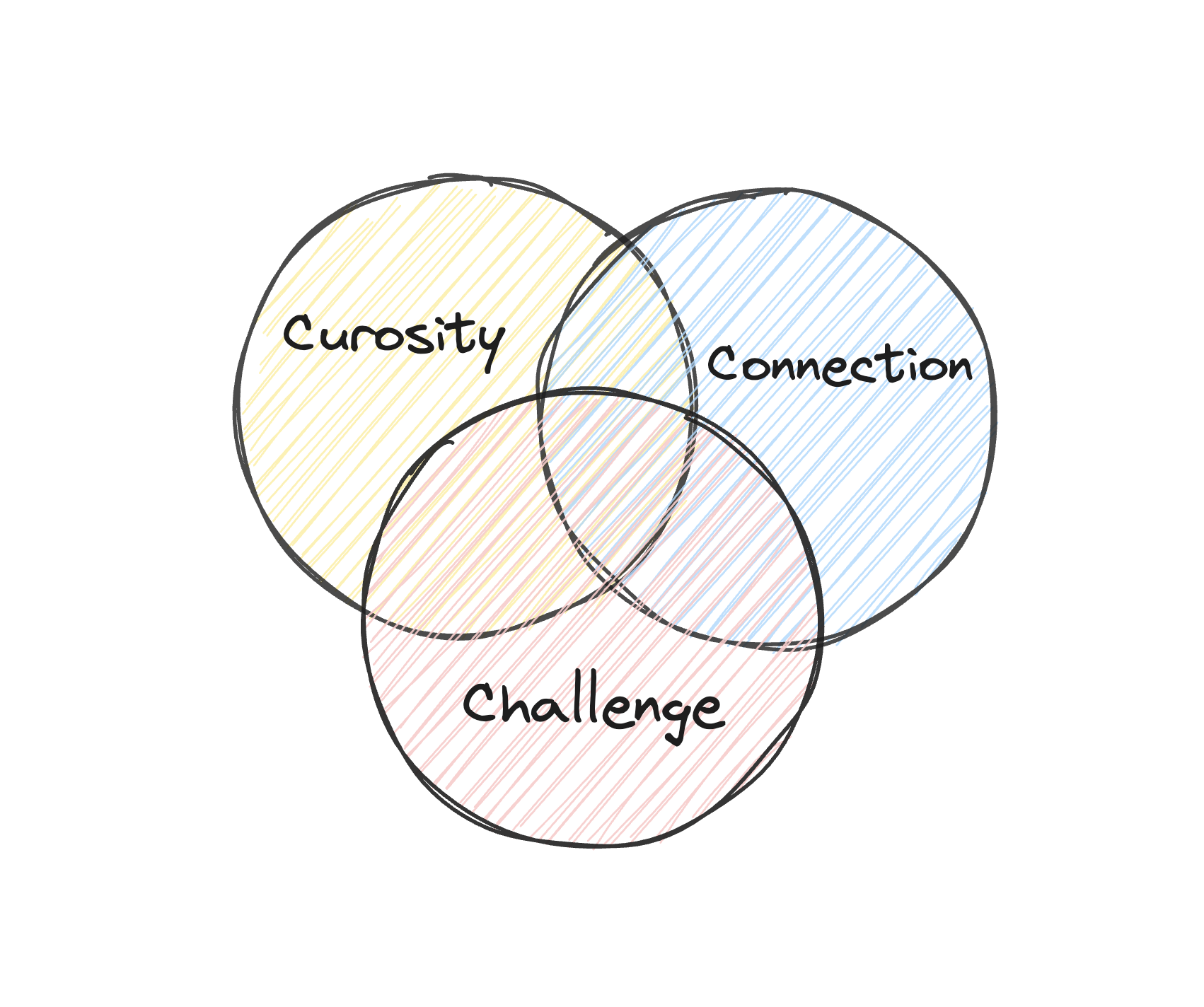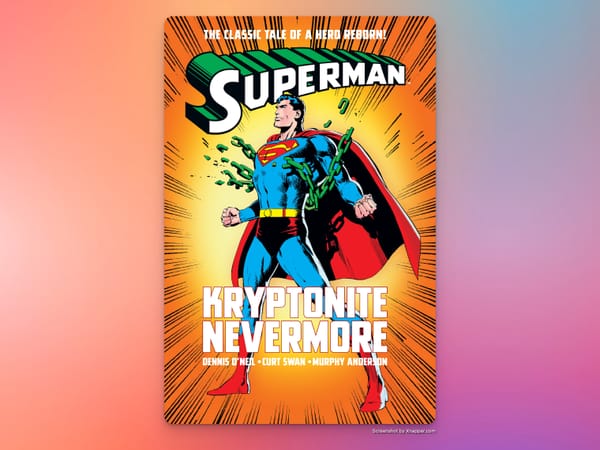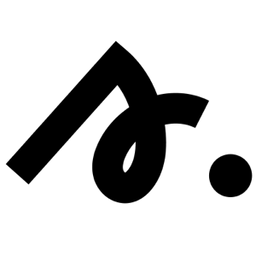Last week we talked about how to deal with using your strengths as an outlier.
This week we're going to talk about the W-word.
Weaknesses.
Specifically how you confront your weaknesses—the things that you find hard while your peers find simple. How you'll never become a massive success by trying to fix your weaknesses and at the same time, you can't let your weaknesses sink you.
Hard For You, Easy for Everyone Else
I was talking to an entrepreneur who has done an incredible job climbing from a lesser-known university to a software engineering, broke into product management and recently had his company acquired after executing a very difficult pivot.
This entrepreneur is technically capable, an effective problem-solver, and great with people. He powers through pressure and impossible workloads better than 99% of people I know.
I was asking him what books or publications he liked to read or how he kept up with industry news. And he admitted that he didn't really read outside of work unless he absolutely had to because of how difficult it was for him.
It turns out, he's dyslexic. I've known him for nearly 10 years and this was the first time I learned of this.
Reading is something I love deeply. I have so many happy memories of being at the library or a bookstore and just gobbling up all the books I could get my hands on. My Kindle library has 849 items in it.
But this entrepreneur has pulled off an incredible outcome despite this "weakness" of being a slower reader.
And that's because he put his strengths to work.
Owning Your Weaknesses
"What's your biggest weakness?"
That used to be the dreaded job interview question. The one you felt you had to come up with a fake answer to "I'm too hard working", "I care too much".
I was once asked that by a team of folks at the Smithsonian as part of the Presidential Innovation Fellows program. I followed a strategy that I would recommend for you:
I was strategically honest. This is what I said:
"I'm not the most detail oriented person in the world. If you need someone to oversee a 50 person dinner party or orchestrate a rocket launch, you should hire someone else. But if you want someone who's full of ideas and going to help a team bring a great idea to life, then I'm your guy."
The fellowship was meant to bring technologists and founders into the government to support new ideas and programs. So I told them a real weakness: I struggle with details, admin work, crossing all my i's etc
But I strategically chose something that was antithetical to the goals of the project. Something that wouldn't matter as much, and whose opposite would be an asset for role.
I got the job.
Because I leveraged one of the truths about weaknesses: every weakness tends to be matched by an opposing strength.
- Creative people tend to have trouble following a process.
- Warm hearted people struggle with holding individuals accountable.
- Abstract thinkers aren't usually as good at explaining things in relatable terms
That doesn't mean that the weaker you are in a dimension, the more strong you are in the other direction or vice versa. But from a raw, patterns of thinking and behavior perspective, that's absolutely true.
Mitigating Your Weaknesses
Ok so how do we actually reduce the impact our weaknesses have on our companies, careers, and lives? Here are three strategies you can use individually or in tandem.
1. Bring up the weakness to an acceptable level
There's no getting around something things. You can't just say you're bad at something and just give up. Despite how I answered the Smithsonian interview question, the reality is, you should be able to speak to how you've able to work on your weaknesses.
- If you're not a confident public speaker, taking a class would go a long way to helping you improve.
- If you tend to hand things in late, creating many little milestone / deadlines for yourself can help reduce the likelihood you're procrastinating to the last minute.
- If you are really risk averse, allocating a budget for discretionary losses (of time, money, or other costs) might help you get more comfortable
2. Partner with people who are strong in your weaknesses
Steve Jobs was a product visionary who initially struggled to ship those insanely great computers at insanely great prices. That's why he positioned Apple as a BMW of computers (because it made the small marketshare seem acceptable). In part this was due to his lack of operational capacity, to drill into the process and details of things to root out waste and inefficiency and bring costs down.
But shortly after he returned to Apple in 1997, he plucked a 37 year old Tim Cook from Compaq to become Senior Vice President of Operations. He understood that Cook could help him improve his supply chain and logistics, an area Jobs wasn't well versed in but knew was critical to reliably and more cost-affordable delivery of the best stuff.
When you have the ability to choose who joins or augments your team, look for people who are different from you, who have strengths in areas where you are weak.
Since going full-time on my own, I've hired an Executive Assistant who helps me stay organized and complete annoying but necessary lead gen work that I would not do on my own. This is not a trivial expense but I think it will pay off massively over the long term.
3. Alleviate Pressure On Your Weakness
This is probably the most tricky / effortful thing to do but can pay the biggest dividends: use your strengths to compensate for your weaknesses.
When you get a blister on your foot, you can buy a little foam pad with a hole in it to stick on the area around the blister. By supporting everywhere around your blister, you take the pain and pressure off the sensitive area.
You can do the same thing in your profession.
If you are deeply shy and uncomfortable with in person interactions, use a blog, a newsletter, case studies, video testimonials and other materials to make the sale as smooth and compelling as possible.
You can also highlight your weakness, and turn it into an amplification of your strength. This is a truly ninja move and can be seen in theoretical physicist Stephen Hawking.
After contracting ALS—a debilitating motor neuron disease—in his twenties, he slowly lost control of most of his body and required the use of a wheelchair and a speech synthesizer in order to navigate and communicate with the world.
And yet he would appear on television shows and even crack deadpan jokes with his robotic monotone voice. Everyone knew he was not going to be the gregarious, animated scientist ala Bill Nye or Neil deGrasse Tyson. But his weakness almost underscored just how much of a genius and an incredible human being he was.
If you can build up your strengths enough, your weaknesses can even turn into charming quirks or ways to stay relatable to "ordinary" people. Think how celebrities are always telling you about what they're scared of or things they're embarrassed by.
--
I'm curious, how has this letter changed, if at all, the way you view your weaknesses? Reply back and let me know!
—Jason

Recent Issues

0




